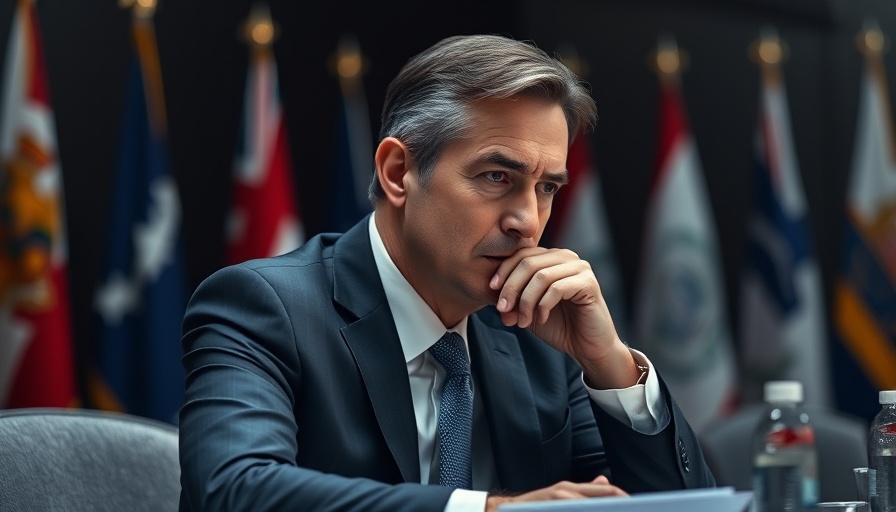
Unexpected Disclosure: A Blunder with Global Implications
The recent revelation that the Trump administration accidentally leaked sensitive military plans to a journalist has raised serious concerns both domestically and internationally. This incident highlights the fragile balance between transparency, national security, and journalistic freedom. As reported by The Atlantic, a senior official inadvertently added the publication's editor-in-chief to a classified group focused on planning strikes in Yemen, leading to an unintentional disclosure of highly confidential military strategies.
The Role of Journalism in Political Accountability
In the current age of information, journalists serve as watchdogs, holding powers accountable. However, incidents like these draw attention to the complexities of how information is shared and controlled within government frameworks. The situation brings to light not only the potential threat to military operations but also the ethical implications of sharing classified information, even if unintentionally. For communities that are actively engaged in social justice and humanitarian advocacy, understanding these dynamics is crucial, as it frames the broader context of U.S. foreign policy and its impacts on nations such as Yemen.
Exploring the Impact on International Relations
The unintentional leak of military plans may seemingly be a domestic issue, but it has global consequences. For nations with which the U.S. interacts, any perceived lapse in confidentiality can erode trust and complicate diplomatic relationships. Countries in the Middle East, where tensions are already high, may view this event as a signal of U.S. vulnerability or erratic governance. This can fuel narratives of distrust or lead to escalated tensions, particularly in the eyes of those who advocate for social justice within conflict-ridden regions.
Historical Context: A Pattern of Sensitive Leaks
This is not the first time a presidential administration has faced backlash due to leaks of sensitive information. Historically, similar incidents have sparked debates over the balance between freedom of the press and national security. In the past, classified documents were often leaked under more pressing circumstances, leading to significant cultural shifts and policy reforms. For today’s mission-minded communities and evangelicals focused on human rights, these historical precedents provide vital lessons on how information management affects humanitarian efforts.
Learning from Mistakes: Strategies Moving Forward
As believers and advocates for justice, it is important for communities to engage with these complex narratives surrounding governance and accountability. Understanding how such leaks happen can help individuals and organizations better articulate their concerns and expectations from elected officials. It also serves as a reminder of the need for robust frameworks that prevent oversights while promoting transparency, which can be vital in humanitarian efforts worldwide.
In times of political flux, it is essential for communities of faith and action to remain vigilant and informed. By doing so, they can advocate effectively for policies that uphold the dignity and rights of affected populations. As we reflect on the implications of this recent leak, let’s remain committed to fostering a discourse that prioritizes ethical journalism, accountable governance, and compassionate action in the face of adversity.
 Add Row
Add Row  Add
Add 








Write A Comment